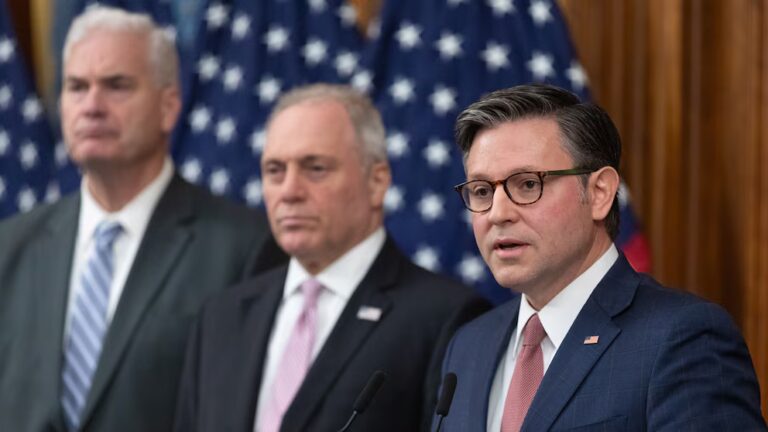
In a matter of days, the Trump administration is expected to announce plans to require drug companies to disclose the list prices of medicines in their TV ads. It was maybe the most Trumpian — loud, brash, probably not very effective — part of the president’s plan to lower drug prices.
Drug makers don’t like it, though. So on Monday, the pharmaceutical industry moved to outflank the Trump administration before the expected release of the new regulations, which was reported by Politico last week.
PhRMA, which represents most of the biggest brand-name drug manufacturers in America, announced on Monday that its members had voluntarily agreed to a new set of principles for their TV ads.
Those principles notably do not require a drug’s list price be disclosed in advertisements, as the Trump administration is expected to require. Drug makers instead promise to direct viewers to more information off-air — probably, in most cases, to a website. This will include the drug’s list price but also some estimates on how much patients would pay out of pocket for the drug as well as what patient assistance is available to cover the costs.
At the same time, the drug industry is more or less promising — without threatening explicitly — to sue the Trump administration if it moves ahead with its plans to require the outright
The story of the Trump administration and Big Pharma has, so far, been mostly one of a successful courtship: Trump came into office using the most heated rhetoric imaginable, but his administration has mostly stuck to smaller, and sometimes smart, policies to try to contain drug costs. The industry has been forced to swallow some things it doesn’t like, but it has certainly seen some wins too (and the big Republican corporate tax cut didn’t hurt).
Of all things, the spat over TV ads seems like it could be the issue that lands the two parties in court. But first, PhRMA is offering its alternative vision for how to better inform consumers in those 30-second spots that we all see all the time.
While nodding to Trump’s challenge to the industry, and acknowledging a responsibility to be more transparent, Steve Ubl, PhRMA’s president and CEO, pushed back hard against the idea that disclosing list prices would actually help lay people understand their drug costs.
”We think putting out the list price in isolation is very confusing,” he said. “It’s misleading, lacks appropriate context, and isn’t what patients want or need.”
Ubl ticked through a few specific concerns that PhRMA has:
- Running high list prices in ads could discourage patients from seeking medical care
- List prices are not a good indicator of what a patient will pay at the pharmacy (which is true, for the vast majority of people who have health insurance)
- List prices don’t reflect the discounts negotiated by insurers and pharmacy benefits managers (true again, though the list price works as a kind of opening bid for those talks)
- Requiring drug makers to disclose list prices could violate their First Amendment rights (legal experts seem to largely agree with this)
The Trump administration sounds unimpressed. HHS Secretary Alex Azar was dismissive in a statement Monday on PhRMA’s announcement.
”The drug industry remains resistant to providing real transparency around their prices, including the sky-high list prices that many patients pay,” he said. “So while the pharmaceutical industry’s action today is a small step in the right direction, we will go further.”
PhRMA’s action is a voluntary one. The group says that because of anti-trust laws, it cannot be too specific about what the ads must now include and how prominently the information must be displayed. Ubl did say that drug makers could use either voiceover or text to point consumers to more information.
But the new principles PhRMA members agreed to are not very specific about how prominent or intelligible the message about where viewers can find more information must be.
”We expect our members to take this very seriously,” Ubl said.
Policy experts were already unimpressed with the Trump administration’s idea of requiring list prices to be included in ads, mostly because there is no real mechanism to lower prices here.
It might be good politics, because everybody knows and sees those drug ads all the time. It sure sounds good to say you’re going to require drug companies to disclose their prices. It’s the drug prices equivalent to Trump’s Wall: a hyperbolic and probably unachievable goal that will probably never happen and, even if it did, doesn’t address the underlying problem.
”Let me put it this way: what’s the reason to think it would have a significant impact on pricing and spending? Shame? We’ve seen that it doesn’t work,” Rachel Sachs at Washington University in St. Louis told me a few months ago. She stands by that assessment.
Then you have the constitutional question. PhRMA sounds quite confident that a regulation like the one the administration is reportedly readying is a serious First Amendment violation, though Ubl cautioned that it would be “premature” to talk about litigation.
”If the government is compelling companies to speak, then that violates the First Amendment,” Jim Stansel, executive vice president and general counsel for PhRMA, told reporters.
Stansel said the available case law supports the industry’s position.
”It’s clear if it’s content-based and speaker-based, then the government is not permitted under the Constitution to require certain speech,” he said.
So here we go, heading down the road that sure seems to lead toward a showdown between President Donald Trump and the drug industry.
This story appears in VoxCare, a newsletter from Vox on the latest twists and turns in America’s health care debate. Sign up to get VoxCare in your inbox along with more health care stats and news.
vox-mark
VoxCare
Subscribe
By signing up, you agree to our Privacy Policy and European users agree to the data transfer policy.
For more newsletters, check out our newsletters page.
Join the conversation
Are you interested in more discussions around health care policy? Join our Facebook community for conversation and updates.
Sourse: vox.com






